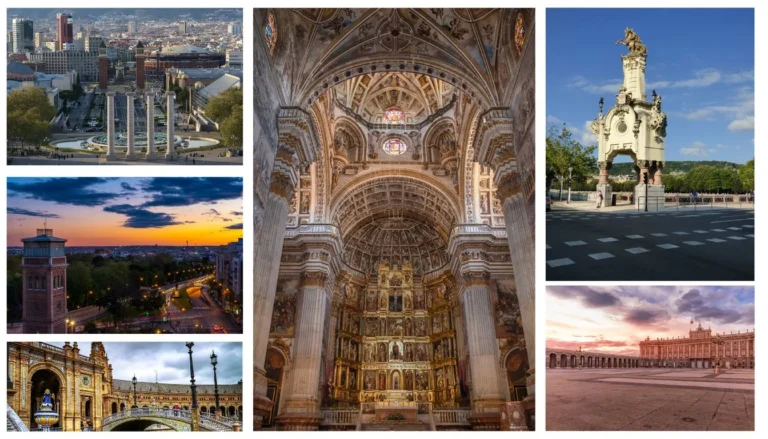Discover why I prefer small European villages over big cities for their charm, tranquility, and unique cultural experiences.
The Allure of Small European Villages
A Contrast to the Bustling Metropolis
The charm of small European villages lies in their stark contrast to the bustling energy of big cities. While cities pulse with a vibrant mix of cultures, rapid technological advancements, and ceaseless activities, villages offer a tranquil escape. Imagine waking up to the sound of birds chirping instead of car horns and breathing in fresh air instead of smog. The slower pace allows for genuine relaxation and a deeper appreciation of the surrounding beauty.
The Unique Charm of Village Life
Every small village has its unique character, often defined by its architecture, traditions, and the warmth of its residents. Cobblestone streets, quaint houses with flower boxes, and historic buildings tell stories of a bygone era. The simplicity of village life, with local markets, family-run businesses, and community events, provides an intimate glimpse into a way of life that is both endearing and enduring.
Cultural Richness and Heritage
Historical Significance
Many small European villages are steeped in history, with roots tracing back centuries. These villages often feature well-preserved landmarks, ancient churches, and castles that narrate tales of their past. Walking through these streets feels like stepping back in time, offering a profound sense of connection to history and heritage that is often lost in the modernity of big cities.
Preserving Traditions and Customs
In villages, traditions and customs are cherished and preserved with pride. From folk dances to seasonal festivals, these cultural practices are a vital part of village life. Participating in these activities or merely witnessing them provides a rich cultural experience that is both educational and enjoyable. This preservation of heritage fosters a sense of identity and continuity, which can be profoundly moving for visitors.
Natural Beauty and Serenity
Picturesque Landscapes
Small European villages are often nestled in some of the most picturesque landscapes imaginable. Rolling hills, lush forests, and serene lakes create a stunning backdrop that invites exploration and reflection. The natural beauty of these areas is a constant source of inspiration and a reminder of the simple pleasures of life.
Clean Air and Tranquility
One of the most immediate benefits of village life is the clean, fresh air and the tranquil environment. Without the pollution and noise that plague big cities, villages offer a serene setting where one can truly relax. The peaceful surroundings contribute to overall well-being, making it easier to unwind and appreciate the moment.
Community and Connection
Close-Knit Societies
Villages foster a strong sense of community. Neighbors know each other, and there is a genuine sense of belonging. This close-knit society means that people look out for each other, creating a supportive network that can be comforting and enriching. This sense of community is often missing in the anonymity of big cities.
Genuine Human Interactions
Interactions in small villages are more personal and meaningful. Whether it’s a friendly chat with the local baker or a neighborly exchange in the town square, these connections are heartfelt. This contrasts sharply with the impersonal interactions often experienced in big cities, where the fast pace and sheer number of people can make genuine connections rare.
Slow Pace of Life
Embracing a Relaxed Lifestyle
The slow pace of life in small villages is one of their most appealing features. There’s no rush, no frantic schedules, just a gentle flow that allows one to savor each moment. This relaxed lifestyle encourages mindfulness and a deeper appreciation of daily activities, from enjoying a leisurely meal to taking a walk through the countryside.
Less Stress, More Joy
Without the constant pressure to keep up with the demands of city life, residents of small villages experience less stress. This reduction in stress translates to a more joyful and fulfilling life. The emphasis on enjoying the present rather than constantly planning for the future creates a healthier and more balanced way of living.
Authentic Experiences
Local Cuisine and Handicrafts
Village life offers authentic experiences that are often lost in the commercialization of big cities. Local cuisine, prepared with fresh, regional ingredients, provides a true taste of the area’s culinary heritage. Handicrafts made by local artisans offer unique, handmade items that reflect the culture and traditions of the village.
Festivals and Celebrations
Villages are often vibrant with local festivals and celebrations that showcase their unique cultural heritage. These events, whether celebrating a harvest, a local saint, or a historical event, are filled with traditional music, dance, and cuisine. Participating in these festivals offers a deep, immersive experience that is both joyous and enlightening.
Affordability and Cost of Living
Lower Expenses
Living in a small village is generally more affordable than in a big city. Housing, food, and other living expenses are typically lower, allowing residents to enjoy a comfortable lifestyle without the financial strain often associated with urban living. This affordability is a significant advantage for those looking to stretch their income further.
More Value for Money
In addition to lower expenses, the overall value for money in villages is higher. Quality of life, personal space, and access to nature come at a fraction of the cost one would pay in a city. This economic benefit makes small villages an attractive option for those seeking a high quality of life without the high cost.
Personal Growth and Reflection
Space for Self-Discovery
The peaceful environment of small villages provides ample space for self-discovery and reflection. Away from the distractions of city life, individuals can spend more time engaging in introspective activities, exploring their interests, and developing personal projects. This freedom to focus on oneself fosters personal growth and fulfillment.
Inspiration and Creativity
The natural beauty and tranquility of village life are a fertile ground for inspiration and creativity. Writers, artists, and thinkers often find that the serene environment and slower pace of life help them to generate new ideas and perspectives. This creative boost is a valuable aspect of life in a small village, contributing to a rich and fulfilling existence.
Environmental Benefits
Sustainable Living
Small villages often embrace sustainable living practices. With a focus on local resources and minimal waste, these communities set an example of how to live harmoniously with the environment. This commitment to sustainability is not only beneficial for the planet but also fosters a sense of responsibility and connection to the natural world.
Reduced Carbon Footprint
Living in a small village typically results in a reduced carbon footprint. With less reliance on cars, lower energy consumption, and a focus on local produce, residents can significantly decrease their environmental impact. This eco-friendly lifestyle is a compelling reason to prefer village life over city living.
Safety and Security
Lower Crime Rates
One of the notable advantages of living in a small village is the lower crime rates. The close-knit nature of these communities means that crime is less common, and residents feel safer. This sense of security is a significant factor in the overall quality of life, contributing to peace of mind and well-being.
Peace of Mind
The tranquility and safety of village life provide a profound sense of peace. Knowing that one is in a secure environment allows residents to relax and enjoy life without the constant worry that often accompanies urban living. This peace of mind is invaluable and a key reason why many prefer small villages over big cities.
Easier Access to Nature
Hiking and Outdoor Activities
Small villages often offer immediate access to nature and outdoor activities. Whether it’s hiking through scenic trails, cycling through countryside roads, or simply taking a stroll in the fresh air, these opportunities are abundant and easily accessible. This close connection to nature promotes physical health and well-being.
Proximity to Natural Wonders
Many European villages are located near stunning natural wonders, such as mountains, lakes, and forests. This proximity allows residents and visitors to explore and appreciate these breathtaking landscapes with ease. The ability to enjoy nature so readily is a major draw for those who prefer village life.
Conclusion
A Personal Preference
Ultimately, the preference for small European villages over big cities comes down to personal choice. For many, the charm, tranquility, and unique experiences offered by village life are unparalleled. The slower pace, strong sense of community, and connection to nature create a fulfilling and enriching lifestyle that is difficult to match in a big city.
The Best of Both Worlds
While big cities undoubtedly have their attractions and advantages, small European villages offer a distinct and compelling alternative. By choosing to live or spend time in these charming locales, one can enjoy the best of both worlds – the rich cultural heritage and amenities of Europe combined with the peace and beauty of village life.
FAQs
What is the most enchanting town in Europe?
Colmar, nestled in the Alsace region, is often described as a real-life fairytale town. Renowned for its picturesque beauty, Colmar stands out as one of France’s most charming destinations, drawing countless visitors each year.
What is the highest inhabited village in Europe?
Tucked away in Georgia’s Caucasus Mountains lies Bochorna, Europe’s highest continuously inhabited settlement. Perched at an altitude of 7,694 feet—equivalent to stacking six Empire State Buildings—it boasts a unique population of just one resident.
Where can you find the most picturesque village in Europe?
Explore these 13 enchanting European villages for an unforgettable experience:
Marsaxlokk, Malta/ Gruyères, Switzerland/ Cong, Ireland/ Óbidos, Portugal/ Reine, Norway/ Albarracín, Spain/ Giethoorn, The Netherlands/ Colmar, France





